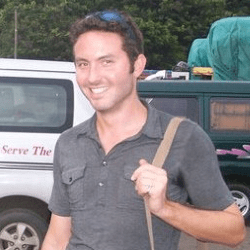
Whitney Bauman is Associate Professor of Religious Studies at Florida International University, where he is also Director of the Program in the Study of Spirituality. He has been Visiting Professor at Gadja Mada University in Yogyakarta, Indonesia, and he researchers and teaches on the topics of religion and ecology, environmental and bio-ethics, secularism and globalisation, religion and queer theory, and philosophies of religion and science. He is the author of Religion and Ecology: Developing a Planetary Ethic, and Theology, Creation, and Environmental Ethics: From Creatio Ex Nihilo to Terra Nullius; and he is the co-editor of Science and Religion: One Planet, Many Possibilities, Voices of Feminist Liberation: Writings in Celebration of Rosemary Radford Ruether, Inherited Land: The Changing Grounds of Religion and Ecology, and Grounding Religion: A Field Guide to the Study of Religion and Ecology.
Speaking of religions as “eco-social constructions across multiple species, over multiple generations, and over multiple histories,” in this interview Whitney Bauman puts forward an ethics of understanding ourselves and others as planetary creatures, and understanding religion, science, and nature as non-foundational, non-substantive categories.
This work is licensed under a Creative Commons Attribution- NonCommercial- NoDerivs 3.0 Unported License.
The views expressed in podcasts, features and responses are the views of the individual contributors, and do not necessarily reflect the views of The Religious Studies Project or our sponsors. The Religious Studies Project is produced by the Religious Studies Project Association (SCIO), a Scottish Charitable Incorporated Organisation (charity number SC047750).